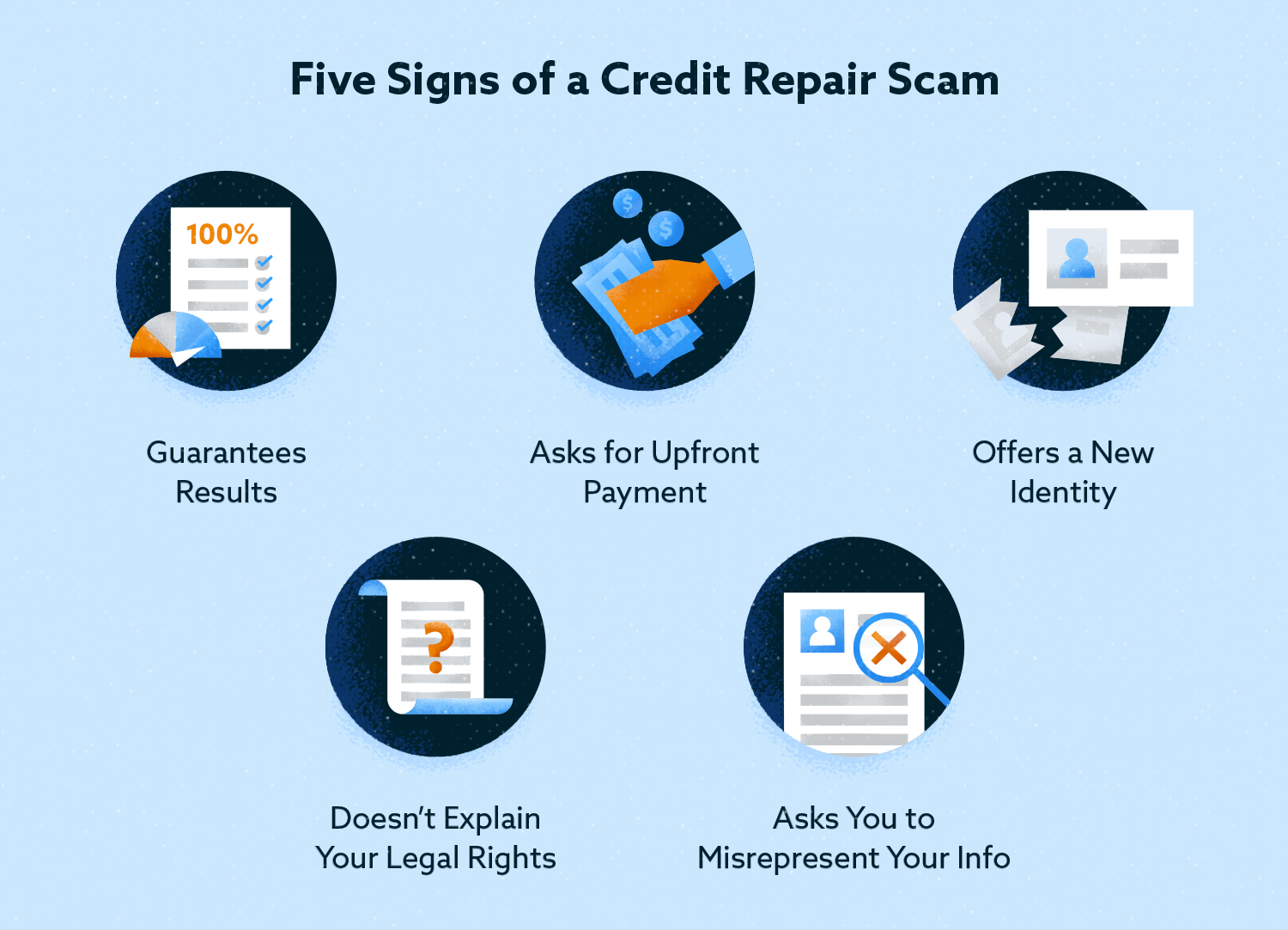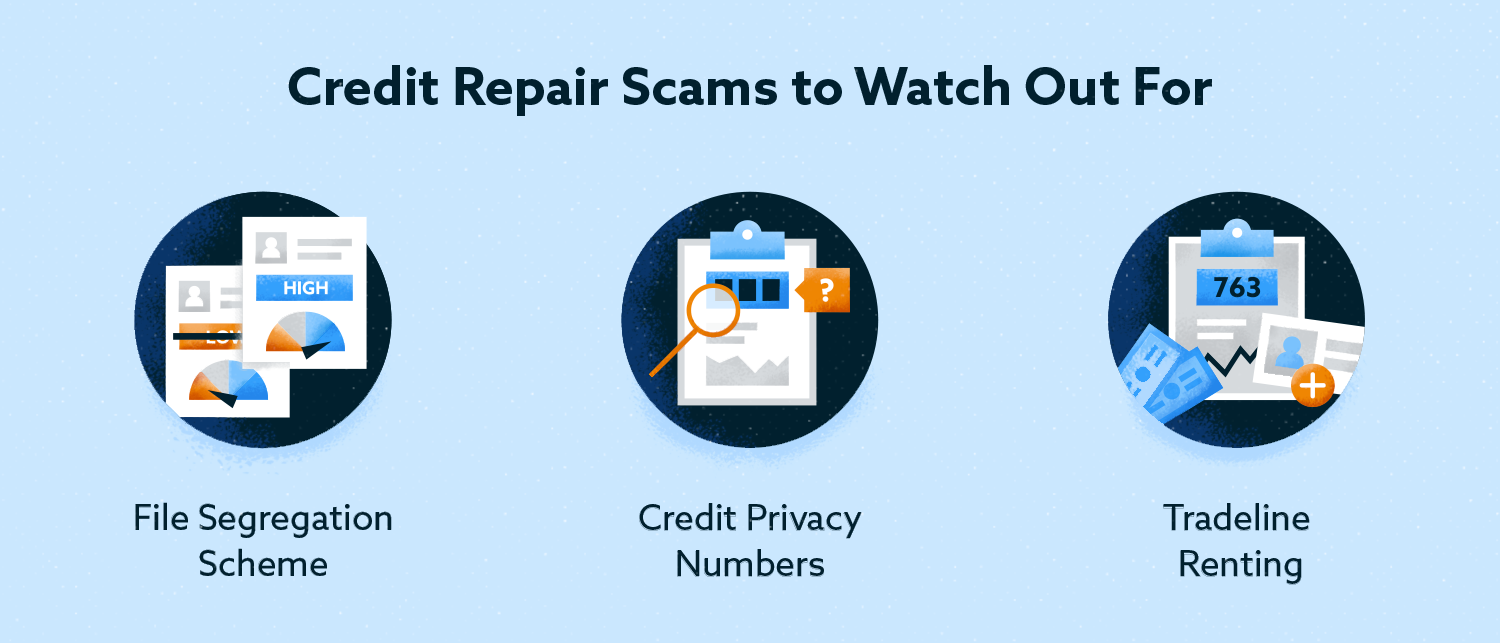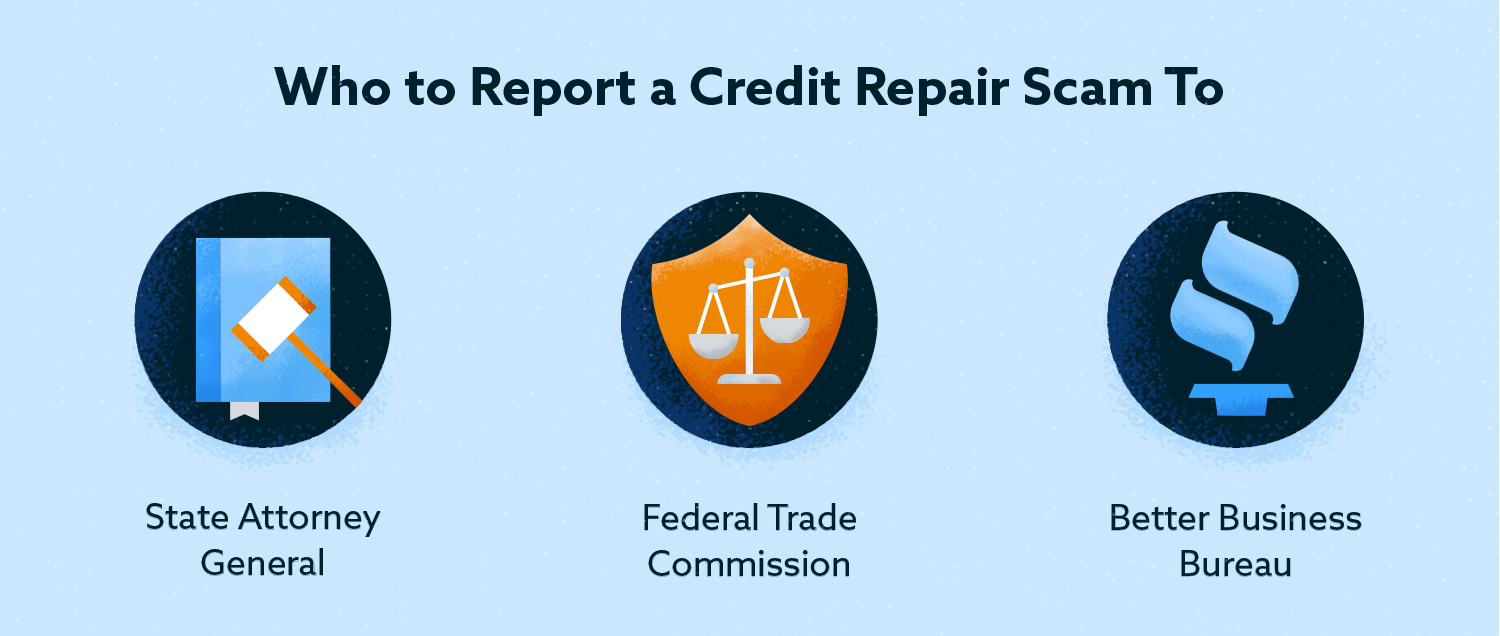If you have poor or damaged credit and want to repair it, you may have considered using a credit repair service to help. Unfortunately, there are many companies that want to take advantage of unsuspecting consumers needing help with their credit.
While there are legitimate companies that can help you repair your credit, there are also credit repair scams that are only after your money and your information for identity theft purposes. To keep both safe, we created this guide to help you tell the difference between legitimate credit repair companies and credit repair scams.
Five Signs of a Credit Repair Scam
There are many things credit repair companies are not allowed to do or promise customers. If it sounds like it’s too good to be true, it probably is, and you should steer clear of that company. We’ve put together a list of signs you should watch out for when working with credit repair companies.
1. Guaranteed Results
Under the Credit Repair Organizations Act (CROA), credit repair companies cannot guarantee results. Here are a few common examples of false promises unethical credit repair companies might make:
- Improvement to your credit score
- Results in a fixed time period
- Removal of all of negative items, even if they are accurate
2. Upfront Payment is Requested
The CROA prohibits credit repair companies from asking for any payment before they render services. Many scammers know that most consumers don’t know this and, as a result, promise a quick turnaround on credit repair for a large upfront payment.
Some illegitimate credit repair companies may not allow you to cancel unless you pay a fee. All credit repair companies are required by law to give you at least three days to cancel services with them and there is no penalty for canceling.
3. Claims a New Identity is Needed
A credit repair company can’t promise or offer you a new identity. Anyone offering you a new identity is a fraud. Besides guaranteeing results, scammers may try to promise you a clean slate with a new Employer Identification Number (EIN) or a Credit Privacy Number (CPN).
They tell you to use these numbers on your future credit applications instead of your Social Security Number. We explain more about common credit repair scams below.
4. Don’t Explain Your Legal Rights
Credit repair companies should explain your legal rights to you from the beginning. These are a few common things an unethical credit repair company might do.
- Tells you not to contact the credit bureaus directly
- Doesn’t give you a copy of the contract to review before signing
- Fails to inform you that you can repair your credit yourself without the help of a credit repair company
- Leaves out important information from the contract, like the date services will be executed or the amount you will pay
If you feel like the company isn’t telling you everything or refusing to answer your questions, you should seek services elsewhere.
5. Asks You to Misrepresent Information
Finally, an unlawful credit repair company might ask you to misrepresent your information. This can range from unlawfully using an EIN or CPN number in place of your social security number to claim you are a victim of identity theft when you’re not.

Common Credit Repair Scams
You’ll most likely see credit repair companies illegally promising results. However, it’s important to familiarize yourself with other scams so you understand what is and is not legal. We highlighted a few common ones below.
File Segregation Schemes
A file segregation scheme is when a company or individual offers to give you an Employee Identification Number (EIN) to use in place of your Social Security Number when you apply for credit. It’s illegal for companies to do this, and it’s illegal for consumers to obtain one to use in place of their Social Security Number.
Credit Privacy Numbers
Like an EIN, a Credit Privacy Number (CPN) is created by scammers to use in place of your Social Security Number when applying for credit. Simply put, a CPN is a fake Social Security Number. Usually, these are created using somebody else’s identity, and using one can be considered identity theft.
Tradeline Renting
Tradeline renting is when you pay for authorized user status so that the tradeline shows up on your credit reports to improve your score. This doesn’t repair any negative information on your credit, but adding a positive tradeline to your credit report can boost your score.
While this isn’t necessarily illegal, it can get you into trouble. There is nothing wrong with a loved one adding you as an authorized user. However, if you pay to “rent” a tradeline from a stranger, you don’t know how it will impact your credit and it may be a scam to get your money.

What to Do If You Are Scammed
There are a few things you can do if you realize you’ve fallen victim to a credit repair scam. Take a look at your options below.
- Report the organization to your state attorney general
- File a complaint with the Federal Trade Commission and the Better Business Bureau
- Consult with an attorney if you’d like to take further legal action

How to Safely Repair Your Credit
Making payments on time and disputing inaccurate information on your credit reports can help you repair your credit. While you can do this on your own, a professional credit repair company like Mckenzieadams.net will make the process easier and more efficient.
Mckenzieadams.net proudly adheres to CROA to make sure we give our clients the best experience possible. For over a decade, we’ve helped clients challenge information that is unfair, inaccurate and unverifiable. Give us a call today for a free, personalized credit report consultation.

